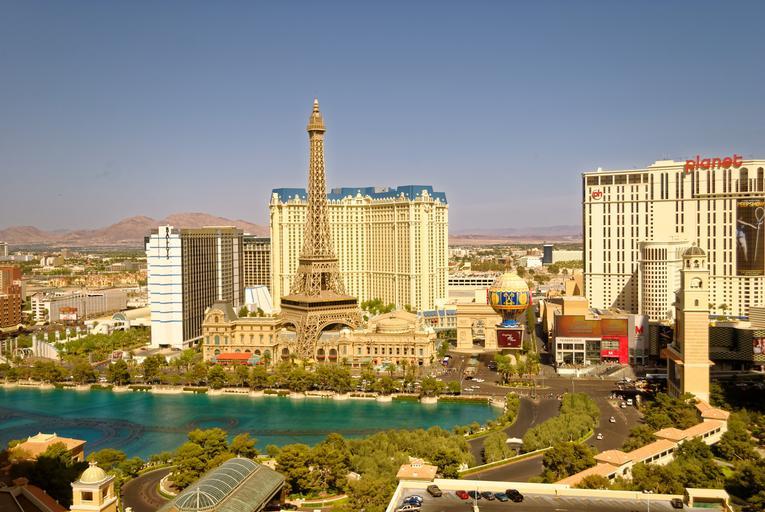Out with one-armed bandits and smoke-filled poker rooms. In with VR poker sets, blockchain technology and NFTs

Movies like The Hangover have popularized Vegas as a destination for bachelor parties among younger generations, and there is no doubt that it remains a top destination for Millenials looking for an unforgettable experience. However, we must ask the question, what comparable alternative do they have?
For millennials, Las Vegas is a bucket list adventure, a Statue of Liberty for debauchery. Here lies a massive opportunity to supply an unserviced demand—a new Las Vegas reinvented for a demographic that will replace baby boomers in the next two decades.
Why makes Vegas unique?
In the popular imagination, Las Vegas conjures images of loud carpets, smoke-filled rooms, mobsters, debauchery, circus-themed hotels, and the hollow facade of Pyramids and Parisian landmarks. It is a place where sin is encouraged because, of course, what happens in Vegas, as the saying goes, stays there.
Vegas is unique for its relaxed gambling laws, its mafia-laden past, and its place in the American psyche as an escape from the mundane routine of everyday life, where you can take risks and be someone else for the weekend.

However, this idea of Vegas has become calcified. Younger generations have become jaded by the fantastic spectacles of technology and gaming, and decades-old themed hotels and false grandeur now seem like nothing more than a tacky gimmick, a play place for drunk bachelors and lonely retirees gambling away with their social security checks.
What does Vegas represent for the gambling industry?
The gaming industry is changing quickly. The era of smoke-filled poker rooms and obnoxious slot machines must now compete with online gambling, esports, and VR/AR technologies. For established Las Vegas casinos, Sin City is a fortress of recurring revenue. They understand that things are changing, but it’s not easy to reassemble a castle.
Vegas is built on gambling. Of those visiting Vegas from 2009-2021, 73% gambled. Considering that Vegas attracted 49 million visitors in 2019, this is a significant number. However, even before the pandemic, revenues of some major Vegas casinos were falling. Las Vegas Sands had an annual revenue decline of 11.67% between 2018 and 2019.
For the rest of the gambling industry, Vegas is precisely this, the establishment, the old guard, a place stuck in the past. Colorado, New Mexico, and Wyoming have legalized sports betting, and there are now online casinos with full-scale components. In fact, the online gambling industry grew by $60 billion from 2019 to 2020.
Vegas no longer has a stranglehold on gambling in the once wild west, and younger generations want novel experiences, games based on skill, and games they understand. Consider that in 2019,$18.5 billion of the $6.5 billion total revenue generated by the Las Vegas Strip can be attributed to gaming, with the “Average Big Strip Casino” earning over $16.5 million from gaming per day in the same year.
Redirecting even a fraction of this revenue to a new Las Vegas designed for younger generations would be an incredible investment with payoffs for generations to come.
A new Las Vegas and the future of gambling
Resorts World is a new $4.3 billion resort that opened its doors on the Las Vegas strip last year. It has been referred to as a high-tech casino, a prelude to the future of Vegas. It has implemented cashless technologies that allow gamblers to import their winnings into a digital wallet in their cell phone, an app with QR codes that allow players to access slot machines, and poker chips implanted with sensors that record bets.

Indeed, these technologies are novel additions to old Vegas, but they hardly match the demand for a truly tech-oriented new Vegas. There is demand for a high-tech alternative, a Pepsi to the Classic Coke that is Vegas.
A brand new city wouldn’t have the burden of rewriting an aging image. Future casinos could allow players to gamble with NFTs and cryptocurrencies, offer esport gaming experiences where players could compete based on historic skill levels, and VR/AR technologies would invite novel experiences as well as new iterations of old table games.
A city built around the younger generation offers the potential to siphon a massive market share from Las Vegas since, as of now, there is no other city meeting this demand. Take a look at the age demographics of Vegas visitors in 2018:
- Over 57% of visitors were over 40 years old
- The average visitor age was 45.1 (an increase from 2016)
- 20% of visitors were 21-29
- 23% of visitors were 30-39
Imagine plugging into a virtual horse track where you could be both gambler and jockey, or placing a blackjack bet with your bitcoin wallet. You could take your skin and rank from a video game you play at home, and compete with others on a physical casino floor for the hottest new NFT.
Older generations might scoff at these possibilities, but Millenials are already scoffing at old Vegas. This may be why a 2014 study showed that only 63% of millennials gamble at casinos, compared to 78% of baby boomers. A new generation needs a new city, built on the world they live in, and the future they are creating

